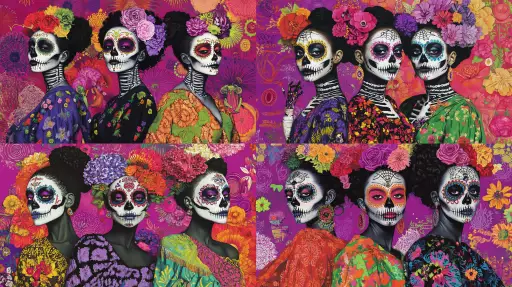Explore the Best AI Image Gallery

The Algorithmic Brush: Exploring AI-Generated Media Ethics
Artificial intelligence (AI) is rapidly transforming various sectors, and the realm of media creation is no exception. AI-generated media, encompassing text, images, audio, and video, is pushing the boundaries of creativity and sparking both excitement and apprehension. While this technology offers unprecedented opportunities for artists, designers, and content creators, it also raises crucial ethical questions that demand careful consideration.
Impact on the Creative Industry
AI-generated media has the potential to revolutionize the creative industry in profound ways. It can automate repetitive tasks, empower individuals with limited technical skills, and democratize access to creative tools. Imagine a world where anyone can generate stunning visuals or compose original music with the help of AI.
However, this transformative power also presents challenges. The rise of AI-generated content could lead to job displacement for human creatives, raise concerns about intellectual property rights, and exacerbate existing inequalities in access to resources.
Potential Uses of AI-Generated Media
The applications of AI-generated media are vast and constantly evolving. Here are a few examples:
- Art and Design: AI can assist artists in creating unique pieces, generating variations on existing designs, and exploring novel artistic concepts.
- Advertising and Marketing: Personalized content, dynamic ad campaigns, and interactive marketing experiences can be powered by AI-generated media.
- Entertainment: From generating realistic special effects in films to creating immersive virtual worlds, AI has the potential to reshape the entertainment industry.
- Education: AI-powered tools can personalize learning experiences, generate interactive content, and provide real-time feedback to students.
Ethical Considerations
As with any powerful technology, the development and deployment of AI-generated media must be guided by ethical principles. Here are some key considerations:
- Transparency and Explainability: It is crucial to understand how AI systems generate content and ensure that the decision-making processes are transparent and explainable.
- Bias and Fairness: AI algorithms can perpetuate existing societal biases. It is essential to mitigate bias in training data and ensure that AI-generated media is fair and equitable.
- Intellectual Property Rights: The ownership and copyright of AI-generated content raise complex legal questions that require careful consideration.
- Misinformation and Manipulation: The potential for AI to create convincing fake news, deepfakes, and other forms of misinformation is a serious concern.
Future Trends
The field of AI-generated media is rapidly evolving. Here are some future trends to watch:
- Increased Personalization: AI will enable the creation of highly personalized content tailored to individual preferences and needs.
- Immersive Experiences: AI-powered virtual and augmented reality (VR/AR) experiences will become increasingly sophisticated and engaging.
- Collaboration Between Humans and AI: The future likely holds a collaborative relationship between human creatives and AI tools, where each complements the others strengths.
As AI-generated media continues to advance, it is essential to engage in ongoing dialogue and collaboration among stakeholders—artists, technologists, policymakers, and the public—to ensure that this transformative technology is used responsibly and ethically.
















](https://images.ai-img.art/thumbnails/150/45237dfa7845159b860f9e234c48c4418e8efcb52b4d15da4493f46e6a99f337.webp)

](https://images.ai-img.art/thumbnails/150/6a9bb97a3f1c45ab616724cc54bca010cbcc2d658a9c0e4581aa181c88046444.webp)



](https://images.ai-img.art/thumbnails/150/6a577517a359cd2bc6212d6b0f12c7cab660841317023550a76c84f409c7f2d0.webp)















](https://images.ai-img.art/thumbnails/150/1b14bd827b740aca3b0d8efa7ed6865e28c7c8382172f3f565c96b6c5f64ca78.webp)






](https://images.ai-img.art/thumbnails/150/065f0b2e150f4cc43a9da80d822e8a385e9e50f2f6ff2cc3be7639cfd74952da.webp)



